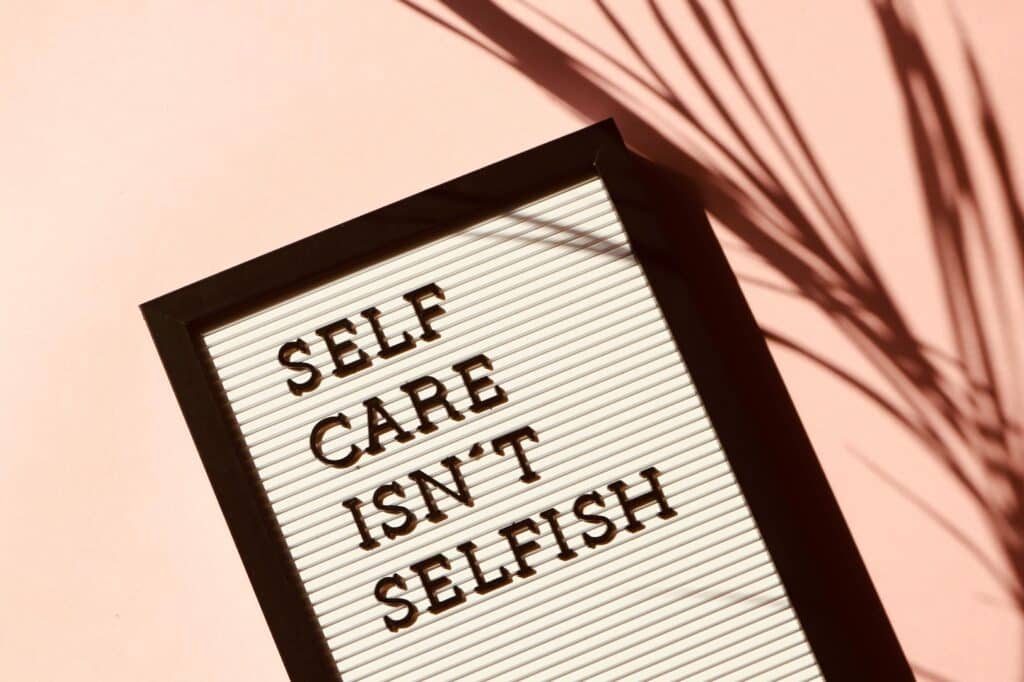Mental health is an important part of overall health. It describes a person’s social, psychological, and emotional well-being. Mental health impacts how people think, act, and feel. It also plays a key role in handling stress, making choices, and interacting with others. Good mental health is essential for living a balanced, productive life.
In the United States, mental health concerns have become a growing crisis. Millions of people face mental health challenges, but many of them cannot get the care they need. This crisis affects various groups, including homeless individuals, veterans, teenagers, and mothers of newborns. Limited resources, financial constraints, and a mental health professional shortage have worsened the situation.
As a nurse, you play an important role in identifying mental health issues, educating patients, and guiding them to resources that can help. By understanding the challenges these populations face, you can provide better care and improve patient outcomes. In this Fast CE For Less guide, we will cover some of the important information regarding the mental health crisis in America.
The Importance of Good Mental Health
Good mental health helps individuals cope with challenges, maintain relationships, and lead productive lives. On the other hand, poor mental health can lead to conditions like depression, anxiety, and other disorders that impact daily functioning and overall quality of life.
Populations Most Affected by the Mental Health Crisis
The mental health crisis in America impacts many vulnerable groups. These individuals often face unique challenges that prevent them from accessing proper care. By understanding the specific struggles of each group, you can better identify their needs and offer appropriate support.

Homeless Individuals
Homelessness and mental health are closely connected. Many homeless individuals live with conditions like depression, anxiety, schizophrenia, and substance use disorders. Their unstable living situation often worsens these issues. Without access to housing, health care, or medications, these individuals are left untreated.
Additionally, homeless individuals face challenges in accessing mental health services. They may not have transportation, phones, or the ability to attend scheduled appointments. Nurses can play a role in identifying mental health issues in this population and connecting them to outreach programs or low-cost services when available.
Veterans
Veterans are at a high risk for mental health conditions. Many return from military service with post-traumatic stress disorder (PTSD), depression, or substance abuse issues. These challenges often stem from their experiences during combat or time in the military. Unfortunately, untreated mental health conditions can lead to job loss, homelessness, or even suicide.
Nurses working with veterans can help by recognizing symptoms early. Signs like hypervigilance, mood swings, withdrawal, or trouble sleeping may indicate a mental health issue. By referring veterans to support services like the Department of Veterans Affairs (VA), you can help them access resources and improve their quality of life.
Teenagers
Teenagers are particularly vulnerable to mental health challenges. Adolescence is a period of significant change, which can bring stress, anxiety, and mood disorders. Social pressures, academic demands, and family issues often add to these struggles. Conditions like depression, eating disorders, and self-harm are increasingly common among teens.
You can support teenagers by recognizing early warning signs. Changes in behavior, loss of interest in activities, declining school performance, or withdrawal from family and friends may signal a problem. Educating teens about mental health and encouraging open communication can help them seek support sooner.
Mothers of Newborns
Mental health challenges among mothers of newborns, such as postpartum depression, are often overlooked. The hormonal changes, physical recovery, and sleep deprivation that follow childbirth can contribute to mental health struggles. Many mothers feel overwhelmed, isolated, or unable to care for their infants.
Nurses are in a key position to identify signs of postpartum depression. Symptoms like persistent sadness, fatigue, irritability, or trouble bonding with the baby may indicate a need for mental health support.
Barriers to Mental Health Care Access
Many people in the United States face significant challenges when trying to access mental health care. These barriers prevent individuals from receiving the support they need, worsening their conditions over time. As a nurse, understanding these obstacles can help you better guide and support patients.
Financial Constraints
One of the biggest challenges is the cost of care. Many people do not have health insurance, and even those with coverage may struggle with high out-of-pocket expenses for therapy, medications, and specialist visits. For low-income individuals, these costs make mental health services completely out of reach.
Shortage of Mental Health Facilities
There is a critical shortage of mental health professionals and facilities across the country. Rural and underserved areas often lack psychiatrists, counselors, and clinics, forcing individuals to travel long distances for care. This shortage delays treatment and leaves many without timely help.
Complex Social Services
Navigating social services can be overwhelming, especially for those with mental health issues. Requirements such as proof of a home address, transportation for appointments, or consistent communication make it difficult to access support. Homeless individuals and those without reliable phones or internet often fall through the cracks.
The Role of Nurses in Addressing the Mental Health Crisis
Nurses play a crucial role in addressing the mental health crisis by identifying issues early, educating patients, and guiding them to proper care. Your skills and patient interactions allow you to make a significant difference in mental health outcomes.
Recognizing Early Signs
As a nurse, you are often the first point of contact for patients. Recognizing early symptoms of mental health issues—such as mood changes, fatigue, withdrawal, or agitation—allows you to provide timely intervention. You can encourage patients to open up about their struggles by asking simple, compassionate questions.
Patient Education
Educating patients about mental health is essential to breaking the stigma and encouraging treatment. You can help by explaining the importance of seeking care, guiding patients on available resources, and supporting them in understanding treatment options, including therapy and medications.
Your role as a nurse extends beyond physical care. By supporting mental health awareness, you can improve the overall well-being of your patients and make a lasting impact on their lives.
Importance of Medications for Mental Health Treatment
Medications play an important role in managing mental health conditions like depression, anxiety, bipolar disorder, and schizophrenia. Medications help balance brain chemistry, reduce symptoms, and improve daily functioning for many patients. While not a solution on their own, they are often combined with therapy for the best results.
As a nurse, you can help patients understand the importance of following their prescribed treatment plans. You can also educate them about potential side effects, the need for regular follow-ups, and the importance of stopping medication with medical advice.
By understanding these challenges, you can provide better support to your patients and make a meaningful difference in their lives. Together, awareness and action can help improve mental health outcomes nationwide.
If you have not completed your nursing continuing education requirements to renew your license and want to learn more, online nursing CEUs offered by Fast CE For Less can help.
To access flexible and affordable nursing continuing education courses and state bundles, visit www.fastceforless.com.



